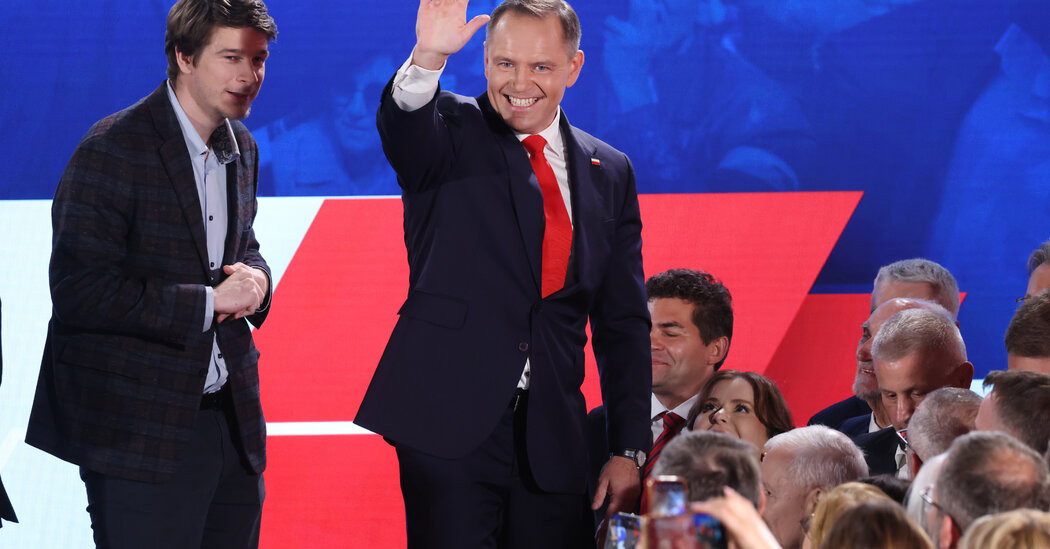

The country’s government is centrist, with deep ties to Brussels. Its new president is a Trump-backed nationalist. That reflects a broader struggle.
Tugged between two poles of Western power — the Washington of President Trump, and Brussels as a champion of liberal democracy — Poland tilted toward the Trumpian model on Monday when a nationalist historian eked out a narrow win in a presidential election.
Karol Nawrocki, an ally of Poland’s populist former governing party, Law and Justice, defeated the liberal mayor of Warsaw, Rafal Trzaskowski, in the runoff held on Sunday after a polarized campaign. Mr. Trzaskowski had been supported by the country’s centrist and Brussels-steeped prime minister, Donald Tusk; Mr. Nawrocki by the Trump administration.
The result, announced Monday, will have little immediate impact on Poland’s domestic or foreign policies, which the president does not control. The country will continue supporting Ukraine militarily, a policy both sides agree on. Nor will the change result in a move to leave the European Union.
But the election in Poland highlights a broader struggle faced by Europe, particularly in the formerly communist East. Battles have raged over divisive issues like migration, abortion and L.G.B.T. rights. National sovereignty has also become a rallying cry on the right, against the power of the European Union to mandate changes many see as being in conflict with traditional values and, in Poland’s case, the Roman Catholic Church.
Jaroslaw Kuisz, a political analyst affiliated with the universities of Warsaw and Oxford, described it as a battle between “two Wests — two power centers that are ideologically very different.”



